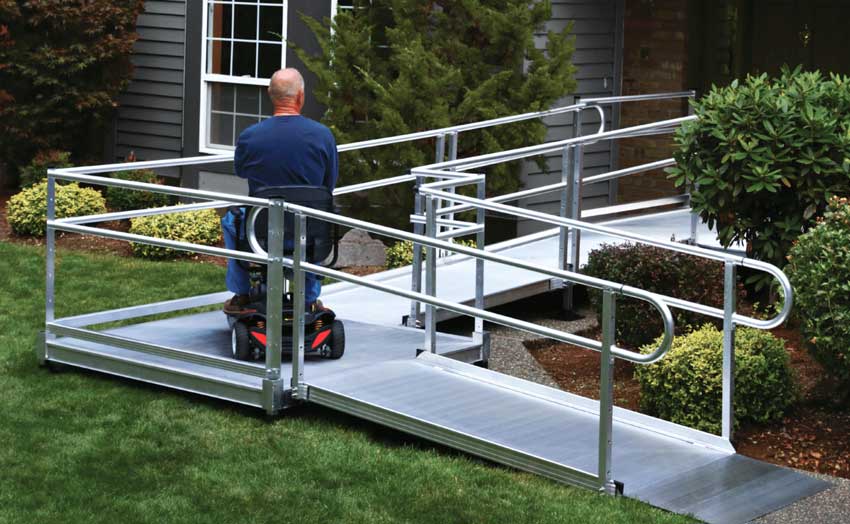
Why are wheelchair ramps important?
By and large, walking up and down stairs is something we do without thinking much of it. Many if not most of us do it several times a day, whether it be down and back up the three steps on your front porch to go out to the mailbox, up to bed, down to the den, or taking the stairs instead of the elevator at work for health reasons.
Walking up and down stairs is so ingrained in the daily routine for most of us that it is difficult to comprehend what it is like to be unable to do that, in whole or in part.
That is, until mobility issues, temporary or permanent, affect you directly, or impact someone you love.
Here are a few reasons why wheelchair ramps are important:
- Preserving and extending independence for people with mobility problems is a common theme on this blog. The ability to get around without leaning on other people – literally, of course, or metaphorically – is fundamental to that sense of independence. Studies show this feeling of accomplishment, of being able to do things on one’s own, is important to mental health. It empowers people. Wheelchair ramps are a key tool to increase mobility, and thereby, boost independence.
- More to the point where the rubber meets the road: it’s a simple issue of access. Even the curb or a couple of steps might as well be Mount Everest or the Grand Canyon to people who cannot navigate stairs or steps. If your business is behind stairs, even a couple, and there is no ramp, you’re alienating a large potential customer base. If your house has front steps and no ramp, you’re keeping out visitors – including possibly elderly family members. If your church has stairs at the door and no ramp, worshippers could be excluded.
- The law says so. The Americans with Disabilities Act (ADA), applied to the issues at hand and distilled down to component parts, requires that if a place is open to the public that it be accessible to all, no matter their limitations. So if there are steps – for that matter even one step – there must be a ramp, which must be in compliance with certain specific regulations.
- Ramps benefit more than just those who use wheelchairs. Seniors who walk with a cane or otherwise have aging limbs? Parents with young kids and/or a stroller? Anyone pushing a shopping cart or pulling a pallet? Small children? Pregnant women? Anyone on crutches or a scooter? Workers carrying heavy boxes?
One can think of no sector of society for which a ramp wouldn’t in some case make a positive difference in terms of ease of navigation – not just those for whom there is no choice. Get in touch with us at Tri-State Mobility to look into having a wheelchair ramp installed – for all these reasons and more – today!

